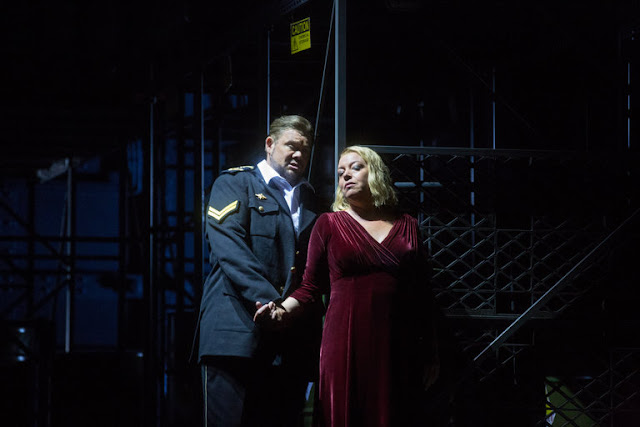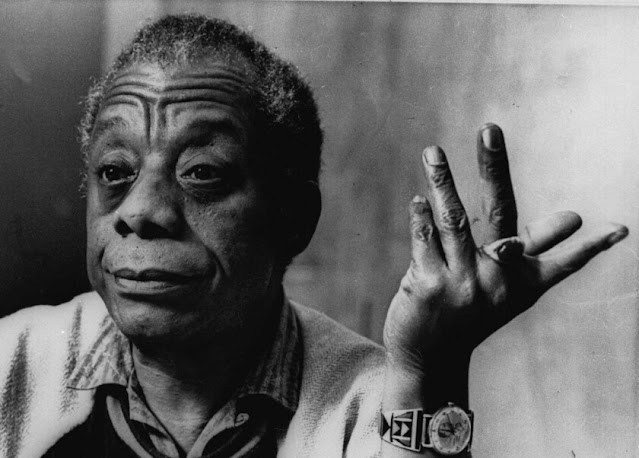Richard Wagner's "Tristan and Isolde" at the Metropolitan Opera
 |
| Stuart Skelton, left, as Tristan and Nina Stemme as Isolde. Photo Credit: Sara Krulwich/The New York Times |
After experiencing the new Metropolitan Opera production of Tristan and Isolde, I am again moved to write a few words, and am grateful for this Blog Spot in which to do it. For those of you who don't know the story of Tristan and Isolde, the tale was made popular during the 12th century through French medieval poetry, inspired by Celtic legend. The knight Tristan is sent by his uncle King Marke to bring him a bride, who happens to be the daughter of the king and queen of Ireland. It is while they are on the ship to Cornwall that Isolde learns that her parents have virtually sold her to King Marke. Of course she is enraged and vows vengeance. Her mother practices the "healing arts" and provides potions for her daughter, including poison to commit suicide (if necessary), and a love potion. She instructs her servant to summon Tristan to her quarters in order to trick him into drinking the death potion, which she intends to share with him. ("I command him to learn to fear his Mistress!") Her loyal servant is so distraught that she serves the love potion instead. Tristan and Isolde are suddenly smitten with each other, and are faced with the reality that she is betrothed to the king. At this moment the ship arrives at port, and the two lovers are pulled away from each other as the king boards the ship.
At the start of Act II, the king and his men are out for a hunting party in preparation for the wedding. Before the men left, Tristan and Isolde arranged to make a signal to let him know that it was safe to approach. The signal is for her to put the light out. The poetry then focuses on themes such as light versus darkness, day versus night, life versus death. They decide that it is not possible for them to live in society as husband and wife, so they choose to dwell together in "The land of night." Without the glitter of royalty or pompous self-absorption, the two lovers disdain all that is false and contrived, and vow "...to live for love alone." When they make the decision to die together, they sing these words:
"So we will die un-separated,In the new Met production, an enormous screen was used for projecting various images. During Act I there were primarily images of the sea, the ship being tossed and turned by huge waves. The image of the sea also gave us a sense of being lost, without grounding, in a vast, uncontrolled space. During the love scene in Act II, there were images giving the perspective of rising through the clouds toward the heavens. The poetry invokes the Goddess of Love, when Isolde's servant panics that her actions have brought such harm and distress. Isolde corrects her and says that the Goddess of Love controlled her hands, and that all should be grateful to Her.
"Forever one without end, "Without awakening, without fear, nameless, surrounded by love, "Entirely given to ourselves, to live only for love."
"Don't you know of the Goddess of Love and her magic power?At the end of Act II, King Marke and his men walk in on the lovers in flagrante delicto, and he seems to feel more betrayed by his nephew than by the actions of his new bride-to-be. He sings that he grew so close to Tristan that he did not need a wife, that Tristan was the one who insisted that he marry. At this point Tristan still does not know that he has ingested the love potion, and cannot explain his behavior to his uncle. In a desperate effort to keep his promise to Isolde, he draws his sword and charges at one of the king's men who stabs him in self-defense. Tristan lay wounded and dying as the curtain falls.
"Of courageous quests She is queen. "She determines what the world will be. "Life and death are subject to Her, "These She weaves out of pleasure and pain."
(People must understand that in his time, Wagner used the popular double entendre technique equating "death" with orgasm. The representation of a sword or spear as a phallus is rather obvious. So when a Wagnerian character says, "Pierce me with your sword and let me die!" you know what she or he is asking for.)
 |
| Stuart Skelton, left, as Tristan and Nina Stemme.Photo Credit: Sara Krulwich/The New York Times |
When the curtain for Act III rises, Tristan is lying wounded and unconscious in his own homeland. His man-servant is tending to him. We don't know if he's alive or dead, until he awakens only to express his longing for Isolde. He doesn't know whether or not she's alive, but he makes it clear that life without her is not worth living. His servant tells him that she still lives, and that he has sent for her to heal him. They spend all of Act III waiting for her, and when she does finally arrive, Tristan is so delirious that he rips the bandage off of his wound and bleeds to death. Isolde then asks what to do with this longing, until she sees his spirit rise and begin to surround her. Meanwhile, a second ship arrives carrying King Marke and his men. Tristan's servant is convinced that they have come for revenge, so he orders his men to fight them. Bodies are strewn right and left, while Isolde is transfixed, focused only on her lover's body. In her final ecstasy, Isolde asks if her friends standing there (including the audience) can hear, see the spirit of Tristan rising over her, which she experiences with all of her senses. Ultimately his spirit is encompassed within "... the world's breath, blowing over all of us."
It is the longing for eternal bliss, free from "madness," anxiety, jealousy, and fear that drives the pair. Some call Tristan and Isolde a study in co-dependency, (in the height of passion, he sings "No more Tristan. I am Isolde," while she sings overlapping him "No more Isolde. I am Tristan."), but I am writing this article for the young people in our circle, who seem to give little or no value to the concept of love. I know many people who are so comfortable giving up on relationships before they even begin. They are so quick to call it quits, and "move on" in their search for someone else. When I see people whose actions are motivated by jealousy, fear of abandonment, or social-climbing, it makes me very sad. They are missing out on the best that life has to offer. We are indeed grateful to Richard Wagner for bringing such beautiful poetry to the stage, and accompanying it with his heavenly music.
"Bliss, life's wondrous weaving. Love, life's holiest living."
 |
| Nina Kennedy before a performance of "Tristan und Isolde" at Wagner's own opera house in Bayreuth, Germany. |










Comments
Post a Comment